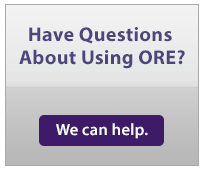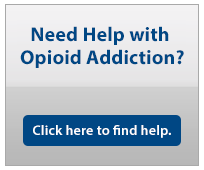Reducing Stigma- Understanding Addiction to Support Recovery (Podcast) Transcript
Reducing Stigma- Understanding Addiction to Support Recovery (Podcast) Transcript
- Length: 7:35
This program is presented by the Centers for Disease Control and Prevention.,
Speaker: This is Jeff Gibbons. And today I’m talking with Brittany Curtis. Brittany is a senior health communications specialist within the Centers for Disease Control and Prevention’s Division of Overdose Prevention. We’re going to talk about the importance of helping to reduce the stigma faced by people who use drugs. Our guest, Brittany, is going to explain what stigma is, how it can make it harder for people to find access to treatment for substance use disorder and the role everyone can play to reduce stigma and provide support around recovery from addiction. We’ll also talk about the treatments for substance use disorders like medication assisted treatment and medications for opioid use disorder, as well as other treatment options out there, what they are and how they work. Even though treatment and recovery are different for everybody. We’ll talk about how you or someone you know can take the first steps to finding help and starting your or their own path to recovery with something that works for you or for them. Welcome, Brittany.,
Brittany: Jeff. Really happy to be here..
Speaker: So let’s just jump right in, Brittany. What is stigma and can you tell us about how it impacts the drug overdose epidemic?.
Brittany: Well, first, I think it’s important to communicate that there are actually several different types of stigma. There’s self stigma, public stigma and institutional stigma. But in this case, we are mostly referring to public stigma, which can describe negative attitudes or discrimination towards people who suffer from substance use disorder. For example, stigma can look like blaming someone for their suffering or assuming that their addiction is a choice that the person makes. And we know that stigma can be very harmful and can prevent people from asking for help when they really need it. Now, unfortunately, drug addiction is very common in the US. In fact, 1 in 14 Americans reports experiencing a substance use disorder, but not enough people get help. Another startling statistic is that in 2019, of those people, 12 and older, who were diagnosed with a substance use disorder, within that past year, only about 10% of those people received any treatment.
Speaker: That is sad to hear. So what are the common misunderstandings that people have about addiction and recovery and what do people need to learn?
Brittany: There are many common misperceptions about addiction and recovery, but I’ll just focus on three today. First, addiction does not look the same for everyone, and therefore neither does recovery. There is not one single driving factor that leads to addiction. You know, some people may use drugs to help cope with stress trauma or to help with mental health issues, and some may even develop opioid use disorder after misusing opioids that were prescribed by doctors. So two people can have very different experiences with substance use disorder. And what works for one person might not be the best path to recovery for someone else. Second, addiction is a disease. It’s not a character flaw. Therefore, overcoming a substance use disorder is not as simple as just resisting the temptation to take drugs through willpower alone. When people take drugs, the brain is actually being flooded with chemicals that take over the brain’s reward system and causes them to repeat behaviors that may feel good but aren’t healthy. The brain adapts to continued drug use by developing a tolerance, which means it may take more of a drug to feel the same result. And so this is also why drug addiction is a disease that can often result in relapse. And third, people need to know that addiction is treatable. There are many treatment options, and any path to recovery is a good path. The most important thing is to find what works for you.,
Speaker: Brittany, these are great points. Each person has different experiences, and their path to recovery will be unique to them. And you’re saying that addiction is treatable, but it can be a challenging journey for some. What about the potential for relapse? Can you explain what relapse is and what it has to do with recovery?.
Brittany: So relapse is returning to drug use after trying to stop. And so relapse can mean a person needs more or perhaps just a different kind of treatment. And it’s not unusual for recovery to involve relapse. You know, when we spoke with people directly, with people who use drugs, many shared that they wanted us to know that recovery does not follow a straight, flat road. You know, there are often hills bumps and U-turns. So relapse can happen along the way. But even when someone relapses, recovery is still possible. We want people in treatment to be encouraged and to keep trying.
Speaker: So we must remember that addiction is treatable and recovery is possible and to help people on their journey. What can we do to change the stigma around treatment and recovery?
Brittany: Would just remind everyone that addiction is a disease and not a moral failing. People suffering from substance use disorders have trouble controlling their drug use, even though they know drugs are harmful. So we should really try and show compassion and offer our support. One way to help is by letting people who use drugs know that they are not alone in their journey to overcome addiction. It can feel isolating and lonely at times, but asking for help can be the first step in that journey.
Speaker: Brittany, can you talk about the different types of treatment options that are available and how do people get help?,
Brittany: Of course. So the good news is that there are many treatment options out there. As I’ve shared, what works for one person might not work for another. Counseling, 12 step programs, inpatient or outpatient rehabilitation or medications to help substance use disorder are several different treatment options. Treatment is also available in person, online through telehealth and in individual or group settings. And for those with opioid use disorder, there are medications that are approved by the Food and Drug Administration, commonly referred to as the FDA, that are proven to help people overcome addiction. They can help normalize brain and body chemistry related to addiction, block their euphoric effects and prevent cravings. So if you’re struggling with addiction, ask your health care provider if medications for opioid use disorder would help you in your recovery journey. Also, know that these medications like buprenorphine, methadone and naltrexone during treatment doesn’t mean you’re cheating. It simply means you found a recovery option that works best for you and treatment that combines medicine with counseling or other behavioral therapy is called medication assisted treatment or mat. And Mat can be an effective way to overcome addiction. Behavioral therapy can be equally important as it helps people change their attitudes and behaviors related to drug use. It also helps prevent relapse and can keep people in recovery longer.,
Speaker: It’s encouraging that there are so many options available. How can we help people get started?
Brittany: Start with asking for help from a doctor or a trusted health advisor. They can help you find treatment or recovery options that are right for you. You can also reach out to your local or state health department to find treatment services that are available in your area. Again, there’s no shame in seeking help for addiction. It’s not easy, but you can do it. And for those who may know someone who is struggling, offer them support and understanding. That might actually be just what they need to start their recovery journey. But no matter who you are, keep in mind that recovery does not follow a straight path. Treatment is available, and there are many different ways to get help.,
Speaker: thank you so much for your time today. If you’re looking for more information about reducing stigma around substance use disorder and the different treatment options that are out there, visit cdc.gov/stop overdose.
Speaker: The most accurate health information, visit cdc.gov or call one 800 CDC info.
« Back to Reducing Stigma- Understanding Addiction to Support Recovery (Podcast)

